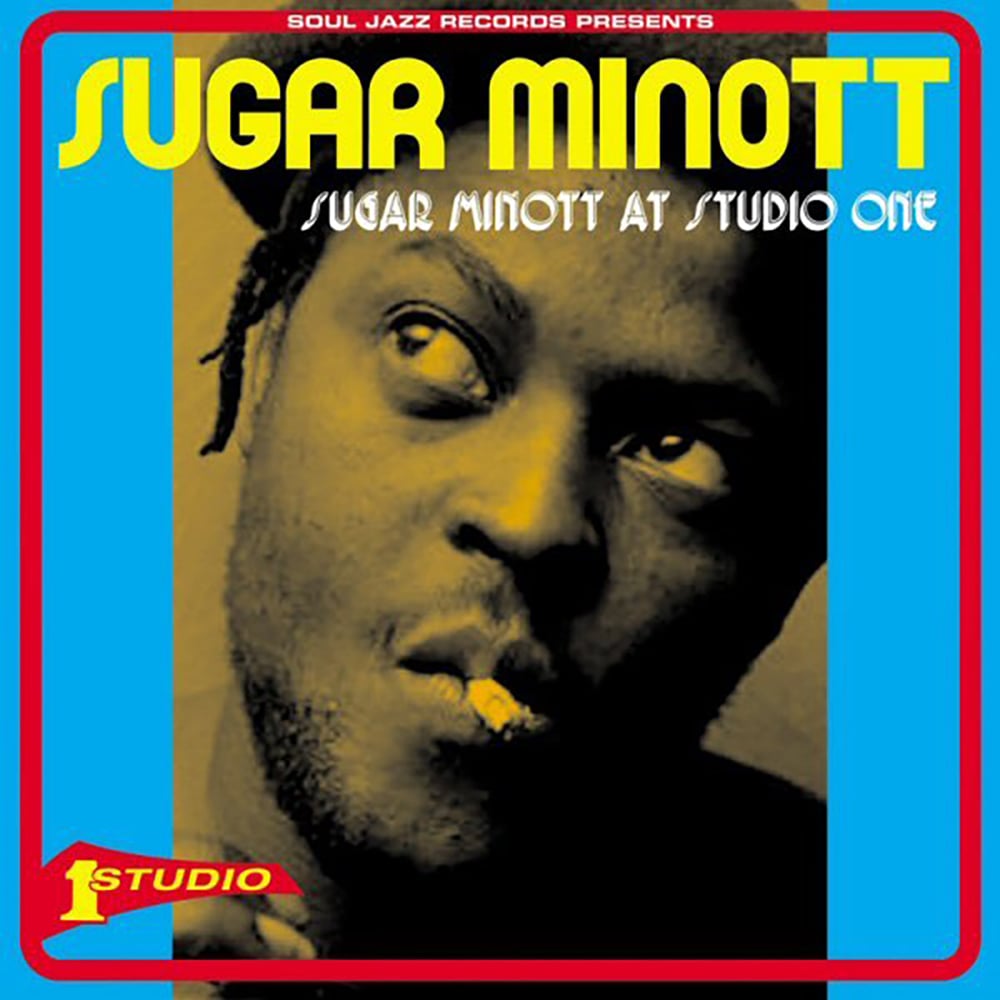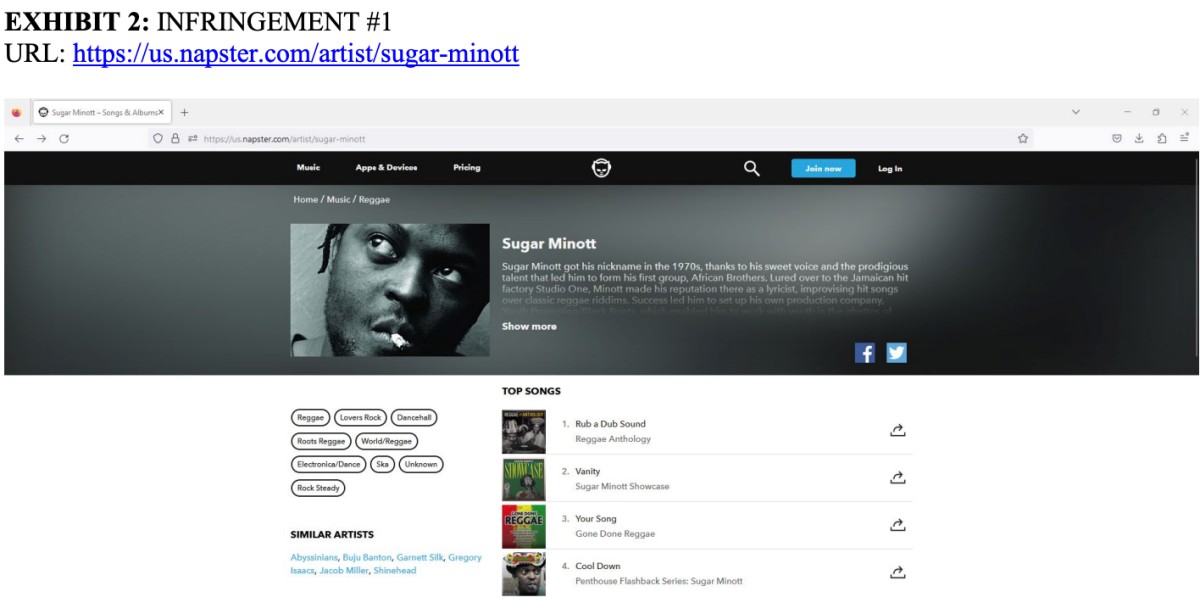A 1979 photo of Jamaican Reggae/Dancehall singer Sugar Minott is the subject of a copyright infringement lawsuit against Napster that could shake up the music industry.
In court filings obtained by DancehallMag, British photographer Adrian Boot has claimed that even though UK label Soul Jazz Records paid him £552.25 to use the photo on the cover art for Minott’s 2005 album, Sugar Minott At Studio One, Napster did not have the right to use the original photograph on its website.
However, Napster — a music streaming service under parent company Rhapsody International Inc. — has argued that by acquiring distribution rights for the album, they implicitly gained rights to the artwork, including the original photograph.
Boot and Napster have each filed motions for summary judgment in a Seattle court, both arguing that the law is on their side and that the judge should decide the case before trial. Judge Kymberly K. Evanson, who held a hearing on the motions on March 29, is yet to issue a decision.
While the financial stakes are low — Boot is seeking at least $15,000 in damages plus attorney fees, and Napster’s attorney, Matthew Eccles, reportedly told Law360 that Minott’s album had only been viewed 120 times on their platform — the legal implications may hold greater weight.
According to Complete Music Update, “the case raises some interesting questions about the way record labels license images from photographers to use in artwork and release marketing.”
“Do labels always have the necessary rights to then allow digital platforms to use the photos? To what extent are agreements between labels and photographers properly formalised? And what are the liabilities of the digital platforms if all the necessary rights haven’t been properly secured higher up the supply chain?”
Boot, who has photographed several famous musicians, including Bob Marley, said he first observed the alleged infringement on Napster’s website on March 15, 2022.
In written submissions, the photographer maintained that his agreement with Soul Jazz Records had only granted permission for the photo to be used on the cover of Sugar Minott At Studio One and that Napster’s digital use on their website would have warranted a separate licensing fee of £2,147.56 ($2,519) through his company Urbanimage.
The complaint noted, “The Infringement is an exact copy of Plaintiff’s original image. The Infringement was used to advertise and/or promote the songs of Sugar Minott, the musician featured in the Photograph.”
Boot also emphasized the photo’s unique value, adding that, due to his “reputation as a respected photographer within the music industry, Sugar Minott agreed to permit Plaintiff access into his own home in London for the photo session.”
In their defense, Napster pointed out that Soul Jazz Records distributed the album and artwork to Rhapsody via a music distributor, Play It Again Sam (PIAS), for use on Napster. Financial compensation flowed throughout the chain, with Soul Jazz Records paying Boot, PIAS paying Soul Jazz Records, Rhapsody paying PIAS, and ultimately, Napster’s subscribers covering the cost through their user fees.
“When Soul Jazz Records bought that license from Mr. Boot it included, as a matter of law based upon the objective facts of the transaction, an implied license to copy and distribute the image along with the album,” they claimed.
Interestingly, Napster wants Boot to cover its legal costs due to the ‘extensive’ effort required to defend the case. “To investigate and refute Mr. Boot’s claim required Napster to dig through reams of distribution agreements and trace the chain of a single photograph over the course of decades,” they noted.
“When this herculean and burdensome task was finally accomplished at Rhapsody’s sole expense, it revealed nothing more than what Mr. Boot had known all along: he had already been paid for a license to use his photographs on Mr. Minott’s album.”
 Sugar Minott (left) and Tenor Saw, 1985. Photo courtesy: Beth Lesser
Sugar Minott (left) and Tenor Saw, 1985. Photo courtesy: Beth Lesser
Sugar Minott pioneered the practice of recording new vocals over classic tracks, a technique that played a key role in the emergence of Dancehall music. This inspired other Jamaican producers to create new music over classic rhythms, leading to a surge in Dancehall’s popularity.
His Sugar Minott At Studio One album is a collection of his best work at the legendary Studio One during the 1970s. It included songs such as Hang On Natty, Vanity, Jah Jah Children, and Love Gonna Pack Up.
Minott’s biggest hits were the Michael Jackson cover Good Thing Going, which reached No. 4 on the UK Singles Chart, and Never My Love, which reached No. 52, Babylon, Hard Time Pressure, Herbman Hustling, Lovers Race, No Vacancy, and Tune In.
He passed away in July 2010 at age 54.

 7 months ago
36
7 months ago
36


 English (US) ·
English (US) ·